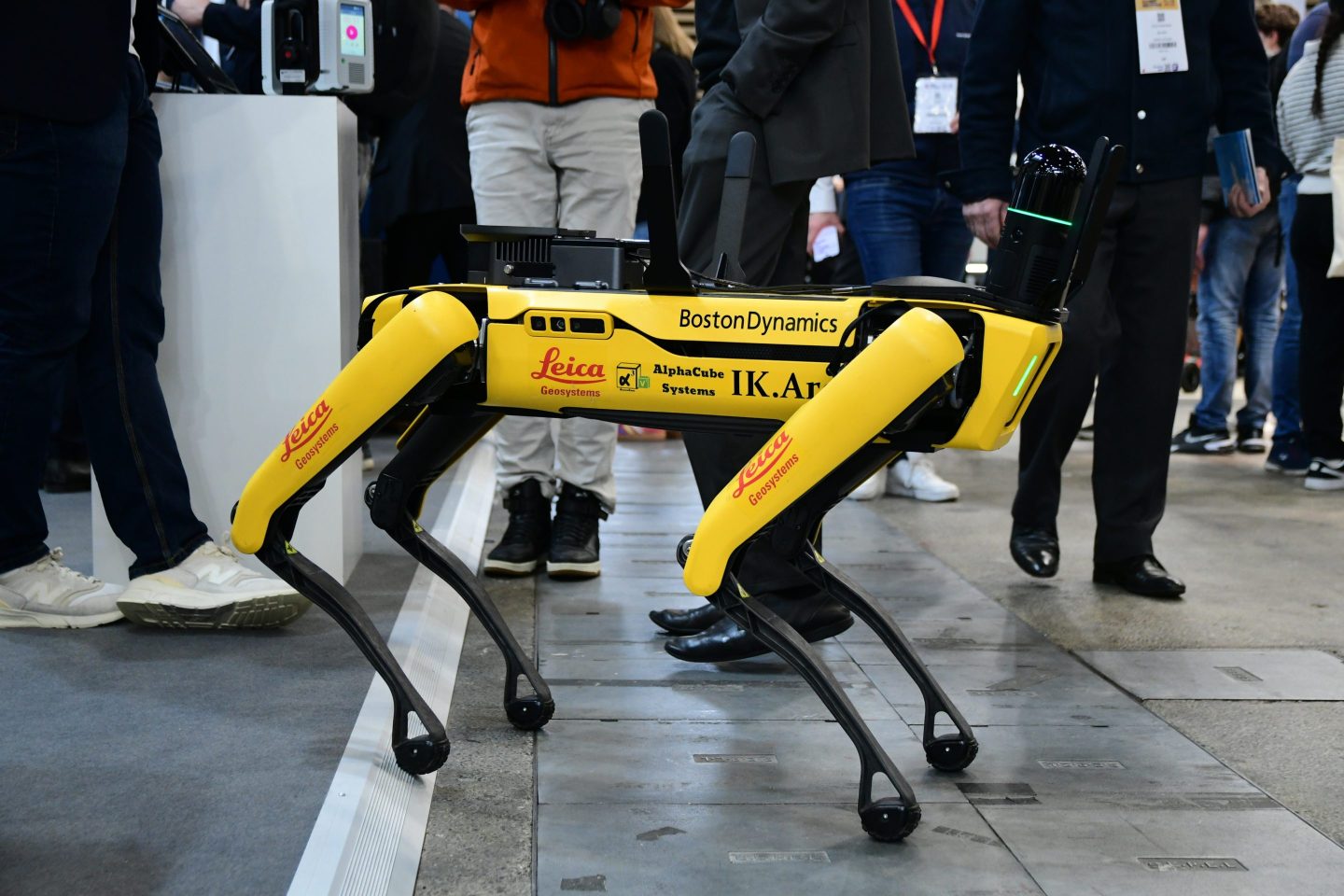American robotics companies are pushing for a national robotics strategy, including establishing a federal office focused on promoting the industry at a time when China is making intelligent robots a national priority.
Representatives of companies — including Tesla, Boston Dynamics and Agility Robotics — on Wednesday met with lawmakers on Capitol Hill to show off products and push for the United States to adopt policies that would boost American companies in a global race to develop the next generation of robots.
Jeff Cardenas, co-founder and CEO of humanoid startup Apptronik, of Austin, Texas, pointed out to lawmakers that it was American carmaker General Motors that deployed the first industrial robot at a New Jersey assembly plant in 1961. But the U.S. Then ceded its early lead to Japan, which remains a powerhouse of industrial robotics, along with Europe.
The next robotics race will be powered by artificial intelligence and will be “anybody’s to win,” Cardenas said in an interview after the closed-door meeting. “I think the U.S. Has a great chance of winning. We’re leading in AI, and I think we’re building some of the best robots in the world. But we need a national strategy if we’re going to continue to build and stay ahead.”
The Association for Advanced Automation said a national strategy would help U.S. Companies scale production and drive the adoption of robots as the “physical manifestation” of AI. The group made it clear that China and several other countries already have a plan in place.
Without that leadership, “the U.S. Will not only lose the robotics race but also the AI race,” the association said in a statement.
The group also suggested tax incentives to help drive adoption, along with federally-funded training programs and funding for both academic research and commercial innovation. A new federal robotics office, the association argued, is necessary partly because of “the increasing global competition in the space” as well as the “growing sophistication” of the technology.
Rep. Raja Krishnamoorthi, an Illinois Democrat, said he believes the U.S. Is ahead in the game but that the Chinese companies are “very good” and that China is “devoting a lot of resources very quickly.”
“So we need to maintain our innovation and maintain our culture of entrepreneurship,” Krishnamoorthi said.
Jonathan Chen, manager of carmaker Tesla’s Optimus Engineering, which is developing a humanoid robot that CEO Elon Musk hopes to one day send to Mars, said manufacturing capabilities will be key to national competition. “You create the robots, the question is who’s going to scale them?” Chen said.
China is the world’s largest market for robots that work in factories and other industrial environments, with about 1.8 million robots operating in 2023, according to the Germany-based International Federation of Robotics.
Robotics manufacturers in Japan and Europe still dominate the global market for hulking factory robots, though the share of Chinese manufacturers in its domestic market has grown to roughly half, according to IFR.
It can be harder to track the progress of emerging robot technologies, such as humanoids or animal-like legged robots, because they are not yet heavily commercialized. Massachusetts-based robotics pioneer Boston Dynamics, now owned by South Korean carmaker Hyundai, relied on U.S. Military research grants for its first few decades of work on agile robots that can crawl and walk.
China now aims to integrate robotics with other emerging technologies such as artificial intelligence, as the country is positioning humanoid robots as a frontier technology and has approved a state-backed venture capital fund of $138 billion to focus on robotics, AI and other cutting-edge innovations.
Earlier this year, the state broadcaster showcased dancing robots at the annual Chinese New Year gala. The army of humanoid robots by the Chinese robotics company Unitree, a Boston Dynamics rival, waved arms and twirled handkerchiefs, boosting national pride that China has taken great strides in the development of humanoid robots to rival those in the United States.
In an annual work report, Chinese Premier Li Qiang said the country would prioritize combining digital technologies and the country’s manufacturing and market strengths, including developing intelligent robots along with connected electric vehicles.
In both the U.S. And China, humanoid robots that combine artificial intelligence with a human-like body have attracted public interest. But they also invite skepticism from some who follow the robotics industry.
“We don’t like humanoid robots very much because they’re silly,” said Bill Ray, a UK-based analyst for market research group Gartner. “They look fantastic, but they’re not very practical.”
Ray instead is looking for more applications of what he describes as “polyfunctional robots” such as wheeled machines that can pick up and carry heavy packages through airports but don’t look at all like people. He doesn’t think government support will make much of a difference in which country takes the lead.
“In the political climate at the moment, we’re not expecting to see fleets of Chinese robots working in American factories or fleets of American robots working in Chinese factories,” Ray said. “I think that’s a given.”
Cardenas, whose company and its Apollo robot has backing from tech giants Nvidia and Google, said a national strategy in the U.S. Could help in incentivizing robot adoption, while also promoting the education of a new generation of robotics engineers and scientists.
“Humanoids are going to play a big role both practically and in capturing the imagination of the public,” Cardenas said.












